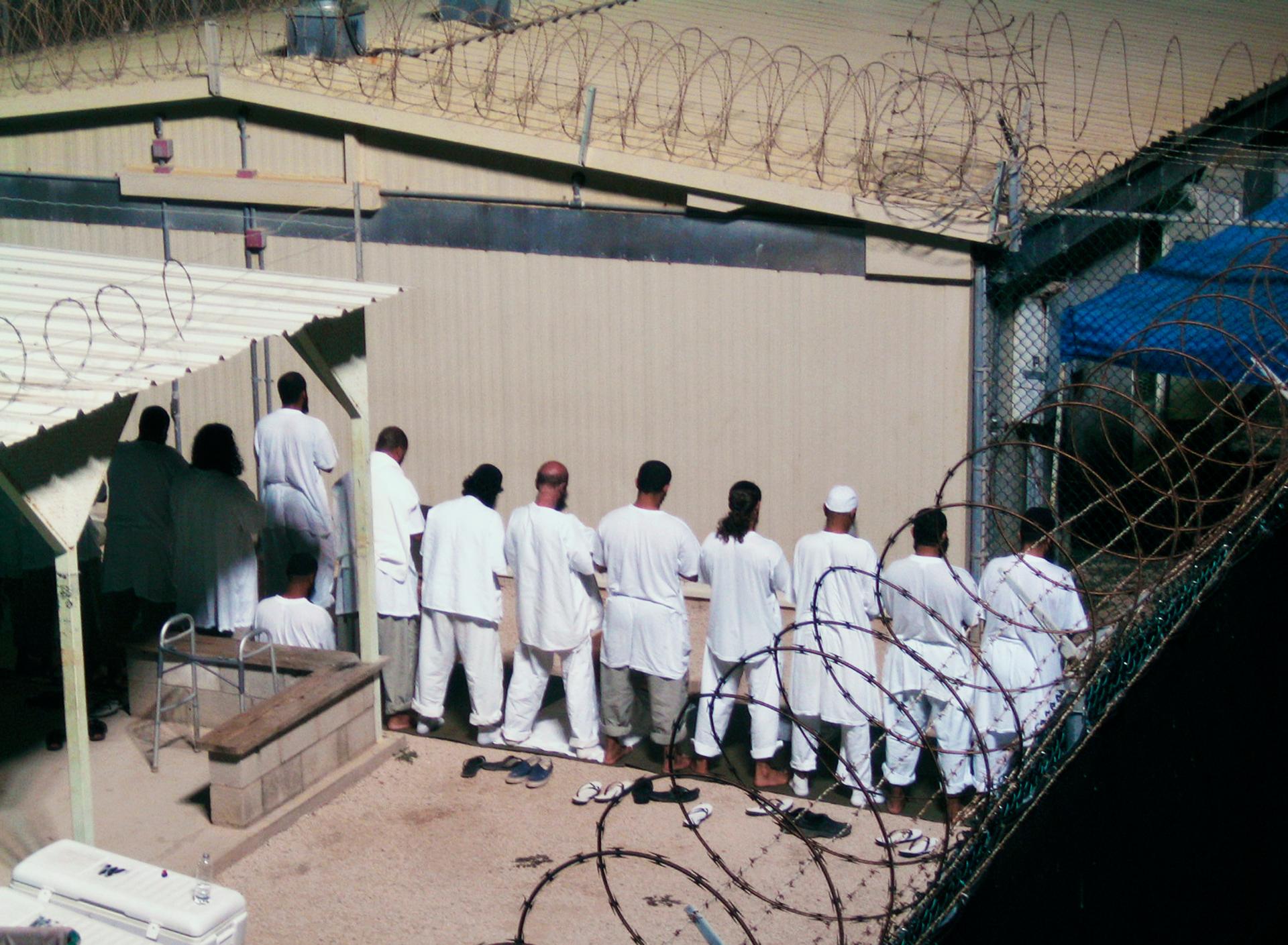Detainees participate in an early morning prayer session at Camp IV at the detention facility in Guantanamo Bay US Naval Base on Aug. 5, 2009.
It's been a week of "will he or won't he" (he being President Donald Trump). And the topic? The use of torture in interrogations with terrorism suspects.
In an interview with ABC on Wednesday, the president said waterboarding "absolutely works," but by Friday, the president stepped back — just a bit. While he said he believed torture and other tactics, euphemistically referred to as "enhanced interrogation," worked, he said he'd allow his defense secretary, former Marine Gen. James Mattis, to "override" him.
"I'm going to rely on him," Trump said. So, apparently, he won't (use torture, that is).
That's likely to please Ali Soufan, a former FBI official who has had firsthand experience interrogating suspected al-Qaeda terrorists. "We already know what [terrorism] did, and it was a total disaster."
Soufan says on the eve of 9/11, al-Qaeda had 400 members. Today, there are thousands and thousands of people who adhere to the ideology of Osama bin Laden.
"Now we have terrorists catching innocent hostages and putting them in orange suits because we put people in orange suits," Soufan says, referring to the disturbing images of detainees being abused at Abu Ghraib prison in Iraq during the war.
Those images were "more successful in recruiting terrorists to the fight against US troops in Iraq than anything else." Soufan says there is a bipartisan consensus among military leaders and policymakers on both sides of the aisle that torture is immoral, generates no credible intelligence and endangers our military personnel and citizens alike. "It harms our American credibility around the world, and it hinders successful prosecutions in terror cases."
Soufan says gaining useful information has little to do with the toughness of the interrogation. It's about doing smart interrogation — versus waterboarding and beatings.
"The architect of the 9/11 plan, Khalid Sheikh Mohammed, was waterboarded 183 times, but he still refused to divulge any information about bin Laden or the so-called courier," Soufan says.
Soufan said his interrogation relied on building a relationship with the terrorism suspects and confronting them with evidence. "You fool them with the stuff they believe that you probably already know, even though you don't know it."
What would Soufan tell President Trump if he had his ear?
"I'd tell the president to listen to the professionals in the intelligence and law enforcement community, to listen to people like General Mattis and General [John] Kelly [Trump's pick for Homeland Security secretary], who know exactly what needs to be done in order to produce great intelligence. Don't go with what is popular among people in his base or people who surround him who really have no national security experience."
Soufan says the number one terrorist threat in the US is radicalization via the internet. Even so, President Trump is expected to restrict the issuing of visas to people from seven Middle Eastern and North African countries. He signed an executive order late Friday to such an effect. The Los Angeles Times and other news outlets obtained a draft of the order; the one he actually signed is not yet available on the White House website.
Soufan says the protocols and procedures that have been in place since 9/11 give US officials all they need to know about an individual who has been given a visa.
Ironically, of all those plots and attacks against America since 9/11 — "none of them were carried out by citizens from the seven countries listed in the travel ban," Soufan points out.
We want to hear your feedback so we can keep improving our website, theworld.org. Please fill out this quick survey and let us know your thoughts (your answers will be anonymous). Thanks for your time!
